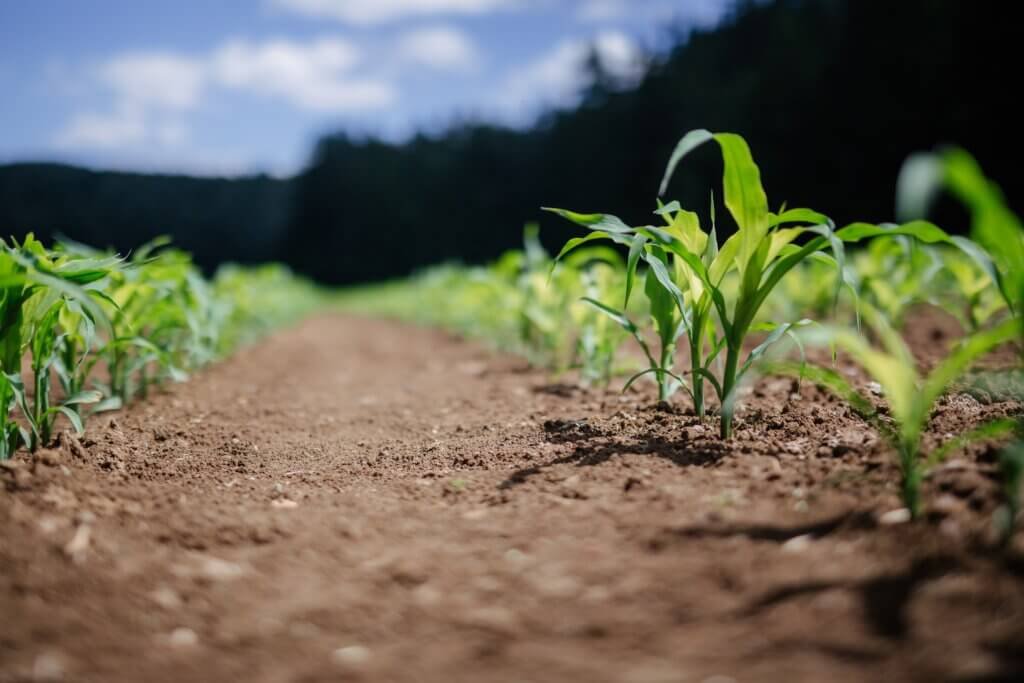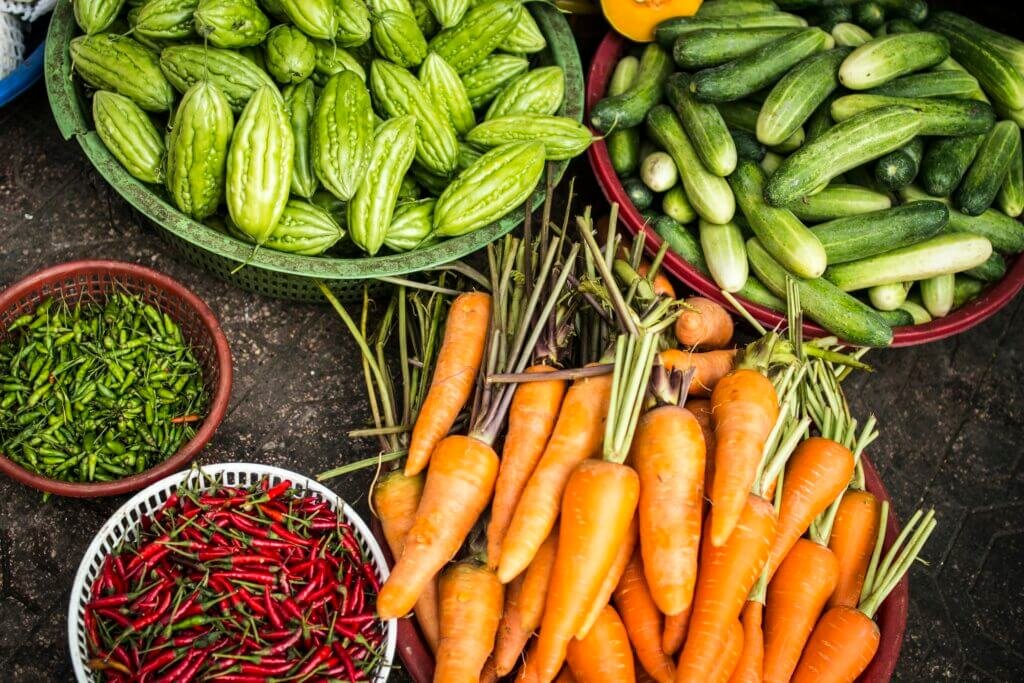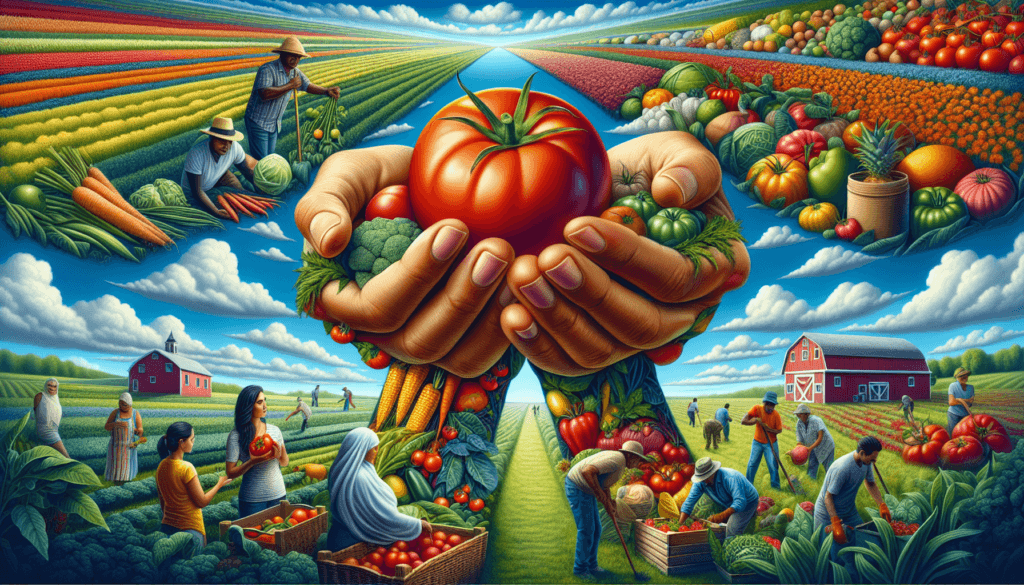Have you ever wondered about the benefits of community supported agriculture? Well, you’re in luck because we’re here to shed some light on this charismatic farming model. Community supported agriculture, or CSA for short, is a concept that brings together local farmers and members of the community in a beautiful partnership. By joining a CSA program, you not only support your local farmers, but you also reap a wealth of advantages such as access to fresh, seasonal produce, a stronger connection with your food, and the knowledge that you are contributing to a sustainable and resilient food system. Say goodbye to supermarket woes and hello to the wonderful world of community supported agriculture!

Lower Cost and Higher Quality
Direct Farm-to-Consumer Relationship
One of the key advantages of community-supported agriculture (CSA) is the direct farm-to-consumer relationship it offers. By participating in a CSA, you have the opportunity to connect directly with local farmers who grow your food. This direct relationship eliminates the need for middlemen and allows you to have a better understanding of how your food is produced. It also gives you the chance to give feedback, ask questions, and even visit the farms where your food is grown. This direct connection not only provides you with higher-quality produce but also ensures that you are supporting local farmers and their families.
Elimination of Middlemen
By participating in a CSA, you are able to bypass the middlemen typically involved in the production and distribution of food. When food goes through middlemen, each step adds extra costs, which are ultimately transferred to the consumers. However, with CSA, you can cut out these middlemen and directly support local farmers. This eliminates the additional costs associated with intermediaries and allows you to enjoy fresh, high-quality produce at a lower cost.
Fresh and Nutrient-Rich Produce
When you join a CSA, you can experience the joy of eating truly fresh and nutrient-rich produce. Unlike grocery store produce, which often spends days or even weeks in transit and storage, CSA produce is typically harvested just before distribution. This means that you receive fruits, vegetables, and other farm products at their peak freshness and nutritional value. By consuming these fresh, locally grown foods, you can ensure that you are getting maximum flavor and nutritional benefits.
Access to Organic and Locally-Grown Food
CSA programs often prioritize organic and locally grown produce. Organic farming practices prioritize the use of natural methods, such as composting, crop rotation, and biological pest control, to grow food without the use of synthetic chemicals. By joining a CSA, you can gain access to organically grown food that is free from harmful pesticides and genetically modified organisms (GMOs). Additionally, CSA programs source their products from local farms, reducing the carbon footprint associated with long-distance transportation.
Affordability for Consumers
Participating in a CSA can be more affordable compared to purchasing produce from the grocery store. By eliminating middlemen and purchasing directly from farmers, CSA programs can offer competitive prices for fresh, locally grown produce. Additionally, some CSA programs offer payment options that allow you to spread the cost of your share over the course of the growing season, making it more accessible for individuals or families on a budget. The affordability of CSA shares ensures that fresh, healthy food is accessible to a wider range of people.
Environmental Benefits
Reduced Carbon Footprint
One of the most significant environmental benefits of CSA is the reduced carbon footprint associated with food production and distribution. By supporting local farmers and purchasing locally grown produce, you are reducing the distance that food needs to travel from farm to table. This means fewer greenhouse gas emissions from transportation, as well as reduced energy consumption for refrigeration and storage. The emphasis on sustainability and shorter supply chains in CSA programs contributes to mitigating climate change and promoting environmentally friendly practices.
Preservation of Agricultural Land
Participating in a CSA helps preserve agricultural land that is vital for food production. By supporting local farmers and ensuring their economic viability, CSA programs encourage the continued use of farmland for farming purposes. This reduces the risk of land conversion for other purposes, such as urban development or industrial use. Protecting agricultural land not only maintains green spaces but also helps to preserve ecosystems, wildlife habitats, and the overall natural beauty of the countryside.
Conservation of Biodiversity
Small-scale farmers in CSA programs often cultivate a diverse range of crops and varieties, promoting biodiversity. Unlike large-scale monoculture practices, CSA farms typically grow a wide array of fruits, vegetables, herbs, and even flowers. This diversity is not only visually appealing but also provides habitat and food sources for beneficial insects, birds, and other wildlife. By supporting CSA, you play a vital role in conserving biodiversity and maintaining a healthy ecosystem for future generations.
Promotion of Sustainable Farming Practices
CSA programs are typically committed to sustainable farming practices that prioritize environmental stewardship. This includes practices such as organic farming, soil conservation, water management, and responsible pest control methods. By supporting farmers who follow these practices, you contribute to the wider adoption of sustainable farming methods. This, in turn, leads to healthier soils, reduced water pollution, and improved biodiversity. CSA members can take pride in knowing that their food is produced with minimal negative impact on the environment.
Protection of Water Resources
Water is a precious resource that is essential for agriculture and our overall well-being. CSA programs often prioritize sustainable water management practices to protect this valuable resource. By supporting CSA, you are contributing to the conservation of water through practices like efficient irrigation methods, capturing and reusing rainwater, and minimizing water waste. Water conservation in agriculture helps to prevent water scarcity, maintain healthy ecosystems, and safeguard the availability of clean water for future generations.
Supporting Local Economy
Strengthening Small-Scale Farmers
Community-supported agriculture plays a crucial role in supporting and strengthening small-scale farmers. Small farmers often face significant challenges in competing with large-scale industrial agriculture. However, through CSA programs, small farmers gain direct access to the market, reducing their reliance on fluctuating commodity prices. By joining a CSA, you provide local farmers with a stable customer base and the financial support they need to continue farming sustainably, fostering a vibrant and resilient local food system.
Job Creation and Economic Stability
Supporting local agriculture through CSA programs has a positive impact on job creation and economic stability within communities. Family farms are often significant contributors to local economies, generating employment opportunities in various sectors such as farming, processing, distribution, and retail. By participating in a CSA, you support the creation and maintenance of these jobs, helping to ensure the economic stability and vitality of rural areas. In turn, this strengthens the social fabric of communities and enhances the overall well-being of residents.
Revitalization of Rural Areas
Rural areas are invaluable for their agricultural heritage, natural landscapes, and cultural contributions. Unfortunately, many rural communities have experienced economic decline and population loss in recent years. CSA programs can play a vital role in the revitalization of these areas by supporting local farmers and fostering sustainable agricultural practices. By joining a CSA, you contribute directly to the revival of rural areas and help preserve their unique character and way of life.
Increased Resilience to Market Volatility
The global food system is subject to various pressures and vulnerabilities, including fluctuations in commodity prices, weather events, and trade disruptions. These market uncertainties can have severe consequences for both farmers and consumers. However, CSA programs offer a more resilient alternative by reducing dependency on global supply chains and fostering local food production. By supporting local farmers through a CSA, you contribute to a more stable and secure food system that is less susceptible to market volatility.
Enhancement of Community Connectivity
Community-supported agriculture is not just about food; it’s also about fostering connections and building relationships within communities. By joining a CSA, you become part of a community of like-minded individuals who share a common interest in supporting local agriculture and sustainable food systems. CSA often provides opportunities for members to interact with farmers, participate in farm events, and engage in community-building activities. These connections help to strengthen the social fabric of communities, promoting a sense of belonging and shared values.
Educational Opportunities
Transparent Food System
Participating in a CSA can offer a transparent food system where you have a clearer understanding of how your food is grown. CSA programs often provide opportunities for farmers to share information about their farming practices, harvest methods, and even challenges they face throughout the growing season. This transparency allows you to make more informed choices about the food you consume, fostering a deeper connection with the land, farmers, and the food system as a whole.
Knowledge of Farming Practices
Joining a CSA provides a unique opportunity to gain knowledge and insight into farming practices. Many CSA farmers are open to sharing their expertise and teaching their members about sustainable farming techniques, crop rotation, pest management, and other aspects of organic agriculture. This hands-on education can empower you to make more informed decisions about the food you eat, and it can also inspire you to grow your own food or support local agriculture in other ways.
Exposure to Seasonal Food Varieties
CSA programs offer a delightful journey through the seasons, as you experience the joy of eating fresh, seasonal produce. Unlike supermarkets that import fruits and vegetables from far and wide throughout the year, CSA members receive a diverse range of crops that are in season. This exposure to seasonal food varieties not only introduces you to new flavors, colors, and textures but also helps you develop a deeper appreciation for the natural rhythms of the land and the unique characteristics of each season’s bounty.
Hands-on Learning for Children
Children who participate in a CSA can benefit greatly from hands-on learning experiences. They have the opportunity to visit farms, engage in farm activities, and learn about the food they eat directly from farmers. This direct connection to the source of their food helps children develop a better understanding and appreciation for where their food comes from. It also instills in them the importance of sustainable farming practices and the value of supporting local agriculture for a healthier and more sustainable future.
Promotion of Food Literacy
Joining a CSA can promote food literacy, which refers to understanding and making informed choices about food. CSA members often have access to newsletters, recipes, and cooking tips that guide them on how to make the most of the produce they receive. They also have the opportunity to try new vegetables and explore creative ways to incorporate them into their meals. This exploration and experimentation with food helps to expand your culinary horizons and develop a deeper understanding of the nutritional value and delicious possibilities of fresh, locally grown produce.

Community Engagement
Building Stronger Relationships
Community-supported agriculture brings people together and helps build stronger relationships within communities. By joining a CSA, you become part of a network of individuals who share a common interest in supporting local agriculture and sustainable food systems. CSA programs often foster a sense of community and provide opportunities for members to interact with each other and with farmers. This interaction and shared experience create a sense of belonging and connectedness, promoting stronger relationships among members and farmers alike.
Fostering Social Connections
Participating in a CSA is not just about receiving fresh produce; it’s about fostering social connections and creating a supportive community. CSA programs often organize community events, potlucks, and farm visits where members can gather, share meals, and bond over their shared love for locally grown food. These social connections go beyond the transactional nature of a typical consumer-producer relationship and create friendships and networks that extend outside of the farm.
Promoting Collaboration and Cooperation
Community-supported agriculture encourages collaboration and cooperation among farmers and members. Farmers who participate in CSA programs often work together to plan crop rotations, coordinate harvests, and share resources. This cooperation helps farmers manage their operations more efficiently and supports the overall success of the CSA. Likewise, CSA members often collaborate by exchanging recipe ideas, sharing surplus produce, and supporting one another in their journey to eat more sustainably. This culture of collaboration and cooperation creates a stronger and more resilient community.
Community-Building Activities
CSA programs often organize community-building activities that bring members and farmers together. Farm visits, harvest festivals, farm-to-table dinners, and educational workshops are just a few examples of the events that CSA communities often enjoy. These activities provide opportunities for members to engage with farmers, learn more about sustainable farming practices, and deepen their connection to the local food system. They also create a sense of unity and vitality within the community, enhancing the overall well-being and quality of life for all involved.
Shared Responsibility and Shared Success
Community-supported agriculture is founded on the principle of shared responsibility and shared success. When you join a CSA, you become a member of a collective effort to support local farmers and create a sustainable food system. CSA members share in the risks and rewards of farming, understanding that the success of the farm depends on their commitment and ongoing support. This shared responsibility builds trust, strengthens relationships, and creates a sense of pride in the accomplishments and contributions of the community.
Improved Health and Well-being
Access to Fresh and Wholesome Food
Participating in a CSA provides you with access to fresh, wholesome, and nutrient-rich food. The produce you receive is often harvested just before distribution, ensuring maximum freshness and nutritional value. Consuming these fresh fruits, vegetables, and other farm products provides you with essential vitamins, minerals, and antioxidants necessary for maintaining good health. By nourishing your body with seasonal, locally grown food, you are supporting your overall well-being.
Reduced Consumption of Processed Foods
By joining a CSA and regularly consuming fresh, locally grown produce, you naturally reduce your reliance on processed and packaged foods. Processed foods often contain added sugars, unhealthy fats, and artificial ingredients that can have negative effects on your health. By prioritizing whole, unprocessed food from your CSA share, you promote healthier eating habits and reduce the consumption of foods that may contribute to chronic diseases, such as obesity, diabetes, and heart disease.
Encouragement of Balanced Diets
CSA programs offer a variety of fruits, vegetables, and other farm products throughout the growing season. This diversity encourages you to incorporate a wider range of foods into your diet, promoting a more balanced and nutritious eating pattern. With each seasonal change, CSA members receive different crops that complement one another and provide a variety of essential nutrients. This variety supports a healthy immune system, aids in digestion, and contributes to overall wellness.
Increased Physical Activity
Participating in a CSA can inspire and motivate you to be more physically active. As a member, you may have the opportunity to visit the farm, engage in harvest activities, or even participate in farm workdays. These active experiences not only contribute to the production of your food but also provide an outlet for physical exercise. Additionally, CSA members often feel a sense of connection and responsibility to the land, and this connection may encourage you to take up gardening, hiking, or other outdoor activities that promote fitness and well-being.
Positive Mental Health Benefits
Connecting with nature and engaging in community-centered activities can have positive effects on your mental health and well-being. CSA programs offer opportunities to spend time outdoors, experience the therapeutic benefits of gardening, and build supportive relationships with fellow community members. Eating fresh, nutritious food from your CSA share can also contribute to positive mental health outcomes, as a healthy diet has been linked to improved mood, reduced symptoms of depression and anxiety, and enhanced cognitive function.

Reduced Food Waste
Direct Distribution with Minimal Packaging
Participating in a CSA means receiving your produce directly from the farm, typically in minimal packaging. Unlike supermarket produce, which is often unnecessarily wrapped in plastic or placed in containers, CSA produce is typically presented in its natural state. This direct distribution method minimizes the use of single-use plastics and other packaging materials, reducing plastic waste and the environmental impact associated with packaging production and disposal.
Customizable and Flexible Ordering
Some CSA programs offer customizable and flexible ordering options, allowing you to choose the specific items you want and the quantities that suit your needs. This customization helps minimize food waste by ensuring that you receive only the food you can consume. By selecting your produce preferences and adjusting your orders as needed, you can reduce the chances of unused fruits and vegetables going to waste, ensuring that every item in your share is utilized effectively.
Reduction of Perishable Produce Waste
Perishable produce, such as fruits and vegetables, can easily go to waste if not consumed in a timely manner. However, by participating in a CSA, you receive fresh produce that is typically harvested just before distribution. This means that the fruits and vegetables are at their peak freshness and have a longer shelf life compared to store-bought produce. By having access to fresh, locally grown food, you have a better chance of consuming it before it spoils, thus reducing perishable produce waste.
Encouragement for Efficient Utilization
CSA programs often provide resources, such as recipes and storage tips, to help you make the most of your share and reduce food waste. These resources offer guidance on how to store, prepare, and cook your fruits and vegetables to ensure optimal utilization. By learning how to utilize every part of the plant, such as using vegetable peels for broths or stems for stocks, you can minimize waste and maximize the nutrient value and flavor of your produce.
Donation Options for Surplus Produce
In some cases, CSA members may receive more produce than they can consume. However, instead of letting the surplus go to waste, CSA programs often provide options for members to donate excess produce to those in need. This allows the community to benefit from the bounty of the harvest, and it helps address food insecurity by providing fresh, nutritious food to those who may not have access to it. Donating surplus produce is a wonderful way to support those in need while ensuring that no food goes to waste.
Seasonal Eating and Culinary Exploration
Connection with the Natural Rhythms
Participating in a CSA encourages you to connect with the natural rhythms of the seasons. Rather than relying on imported produce that is available year-round, CSA members receive fruits, vegetables, and other farm products that are in season locally. This connection with the natural cycles of planting, growth, and harvest helps you develop a deeper appreciation for the changing seasons and the unique qualities of each season’s produce. It also encourages you to embrace seasonal eating and make the most of the fresh flavors that each season brings.
Discovery of New and Unique Ingredients
Joining a CSA introduces you to a wide range of fruits, vegetables, herbs, and other farm products that you may not find at the grocery store. CSA farmers often grow unique and heirloom varieties that offer distinct flavors, textures, and colors. Through your CSA share, you have the opportunity to discover new and exciting ingredients that can elevate your culinary creations and bring diversity to your meals. This culinary exploration allows you to expand your palate and embrace the rich array of flavors that local agriculture has to offer.
Excitement and Creativity in Cooking
Participating in a CSA can bring excitement and creativity to your kitchen. The diverse and seasonal produce you receive from a CSA share can inspire you to try new recipes, experiment with different cooking techniques, and explore a variety of flavor combinations. Each week’s share presents you with a fresh challenge and an opportunity to think creatively about how to incorporate the fruits, vegetables, and other farm products into your meals. This culinary adventure brings joy and satisfaction as you explore new tastes and nourish yourself with wholesome, delicious food.
Bringing Variety to the Plate
CSA programs provide a wonderful way to diversify your diet and bring variety to your plate. Through the changing seasons, CSA members experience a rotation of different crops, ensuring that no two weeks are the same. This variety enhances your meals, ensuring that you are exposed to a wide range of fruits, vegetables, and other farm products. By incorporating this diverse array of produce into your diet, you can enjoy the nutritional benefits of different nutrients, flavors, and textures, contributing to a well-rounded and enjoyable eating experience.
Enhanced Appreciation for Local Produce
Participating in a CSA cultivates a deeper appreciation for local produce and the hard work that goes into producing it. As a member, you witness the seasonality of food firsthand and experience the effort that farmers put into growing high-quality, flavorful produce. This appreciation extends beyond the immediate enjoyment of the food; it becomes a recognition of the importance of supporting local farmers and the value of sustainable agriculture. By embracing local produce through a CSA, you become an advocate for local agriculture and a champion for the preservation of local food systems.

Food Security and Resilience
Diversification of Food Sources
Participating in a CSA diversifies your food sources and reduces dependence on a single supplier or distribution system. In a globalized food system, disruptions such as natural disasters, trade disputes, or other unforeseen events can impact the availability and affordability of certain foods. By supporting local agriculture through a CSA, you contribute to a more resilient and secure food system. In times of potential shortages or disruptions, CSA members can rely on their local farms to provide fresh and nutritious food, promoting food security at the community level.
Reduced Dependency on Global Supply Chains
The reliance on global supply chains for our food comes with inherent vulnerabilities. Long-distance transportation, storage, and complex distribution networks can be compromised by various factors such as climate change impacts, trade disputes, or political instability. By joining a CSA, you reduce your reliance on these global supply chains and ensure a direct connection with local producers. This reduction of dependency on far-reaching supply chains strengthens local food systems and contributes to a more secure and self-sufficient food system.
Mitigation of Food Shortages
In times of food shortages, CSA programs provide a reliable and accessible source of fresh, locally grown produce. During emergencies, such as natural disasters or disruptions to the supply chain, CSA farms can continue to provide sustenance to their members. With their commitment to sustainable farming practices, CSA farmers are often better equipped to adapt to adverse conditions and continue growing food. By supporting local agriculture through a CSA, you contribute to the mitigation of food shortages and ensure access to nutritious food during challenging times.
Increased Local Food Production
Community-supported agriculture programs foster increased local food production. By supporting local farmers through a CSA, you help them expand their operations, develop new markets, and invest in sustainable practices. This increased local food production contributes to the resilience and self-sufficiency of communities. It reduces the need for long-distance transportation and supports the use of land and resources within the local region. By embracing CSA, you become an advocate for increasing local food production and strengthening the food security of your community.
Enhancement of Community Resilience
Participating in CSA enhances community resilience by promoting local food production, building relationships, and sharing resources. In times of crisis or adversity, communities bonded by a CSA program can come together to support one another, ensuring that everyone has access to fresh food. The connections fostered through CSA provide a network of support and collaboration that can help communities weather challenges more effectively. This sense of community resilience not only enhances food security but also strengthens the overall well-being and cohesion of the community.
Advocacy for Sustainable Agriculture
Supporting Ethical Farming Practices
By joining a CSA, you actively support ethical farming practices. CSA farmers are often committed to sustainable agriculture, which prioritizes environmental stewardship, the humane treatment of animals, and responsible resource management. By choosing to participate in a CSA, you become an advocate for ethical farming practices, supporting farmers who prioritize the well-being of the land, animals, and ecosystems. Your support contributes to the wider adoption of these practices and helps shape a more sustainable future for agriculture.
Promotion of Fair Wages
Community-supported agriculture programs often prioritize fair wages for farmers and farm workers. Unlike large-scale industrial agriculture, CSA programs provide farmers with a direct relationship with the consumer, ensuring that the farmers receive a fair share of the proceeds. By joining a CSA, you contribute directly to the financial stability and well-being of local farmers, supporting their livelihoods and the dignity of farm work. Your participation in CSA promotes fair wages and underscores the importance of valuing the labor that goes into producing our food.
Protection of Farming Knowledge and Traditions
CSA programs play a vital role in preserving farming knowledge and traditions that are passed down through generations. By supporting CSA farmers, you help preserve traditional farming practices that are often rooted in sustainable and ecologically balanced systems. CSA farmers are often keepers of traditional knowledge, caring for heirloom seeds, and practicing crop rotations that maintain soil fertility. By participating in CSA, you contribute to the conservation of agricultural heritage and ensure the passage of farming knowledge to future generations.
Encouragement of Regenerative Agriculture
Regenerative agriculture focuses on restoring and enriching ecosystems, improving soil health, and increasing biodiversity. CSA programs often align with regenerative agriculture principles by prioritizing practices such as cover cropping, composting, and natural pest management. By supporting CSA farmers, you contribute to the expansion of regenerative agriculture and its positive impact on the environment. Regenerative agriculture helps build healthy soils, sequester carbon, and promote long-term sustainability in food production.
Policy Influence for Positive Change
Participating in a CSA can have a broader impact beyond the immediate benefits for farmers and consumers. By supporting CSA and advocating for sustainable agriculture, you contribute to collective efforts for policy change. CSA programs and their members can influence local, regional, and national policies that promote sustainable farming, protect natural resources, and support small-scale farmers. Through your involvement in CSA, you become an advocate for a more just, equitable, and sustainable food system, shaping policies that can benefit communities and the environment.
In conclusion, community-supported agriculture offers numerous advantages that span economic, environmental, educational, social, and health dimensions. By participating in a CSA, you can enjoy the benefits of direct farm-to-consumer relationships, access fresh and nutrient-rich produce, support local farmers and economies, gain educational opportunities, engage with your community, improve your health and well-being, reduce food waste, explore seasonal eating, enhance food security, and advocate for sustainable agriculture. Through the shared commitment of farmers and consumers, CSA programs contribute to a more sustainable, resilient, and equitable food system that nourishes individuals, builds stronger communities, and protects the planet.



